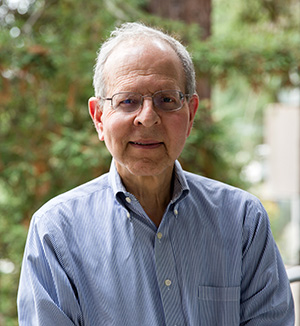Michael Dine, a professor of physics at UC Santa Cruz, has been awarded the J.J. Sakurai Prize for Theoretical Physics by the American Physical Society (APS).
Dine shares the prize with physicist Ann Nelson of the University of Washington "for groundbreaking explorations of physics beyond the standard model of particle physics, including their seminal joint work on dynamical super-symmetry breaking, and for their innovative contributions to a broad range of topics, including new models of electroweak symmetry breaking, baryogenesis, and solutions to the strong charge parity problem."
Dine and Nelson have many shared interests in particle physics and collaborated extensively during the 1990s on supersymmetry, an extension of the standard model of particle physics that aims to fill some of the remaining gaps. "We still talk a lot, because there is a lot of overlap in our interests," Dine said.
The Sakurai Prize will be presented to Dine and Nelson at an award ceremony during the April meeting of the APS in Columbus, Ohio. Dine's colleague at UC Santa Cruz, Howard Haber, won the prestigious award last year.
Much of Dine's research has been aimed at understanding questions for which the standard model does not provide answers, work that often relates to issues in astrophysics and cosmology. He was among those who proposed the existence of a particle called the axion as a solution to a puzzle known as the "strong CP problem" that could explain why there is more matter than anti-matter in the universe. The axion is also a leading candidate for the mysterious dark matter that dominates the structure of the universe.
Dine's work on supersymmetry helped open a rich field studying the dynamics of supersymmetric theories and yielded insights into aspects of string theory. He proposed models to account for the "hierarchy problem," also known as the "problem of large numbers," which relates to the widely disparate energy scales in nature.
A Fellow of the APS and of the American Academy of Arts and Sciences, Dine has held Guggenheim and Sloan Fellowships and won a Department of Energy Outstanding Junior Investigator Award. He received the Outstanding Faculty Award of the UCSC Division of Physical and Biological Sciences in 2011.
Dine received his B.S. from Johns Hopkins University in 1974 and his Ph.D. from Yale University in 1978. He did postdoctoral research at the Stanford Linear Accelerator Center, after which he was a long term member of the Institute for Advanced Study. He was the Henry Semat Professor at City College of the City University of New York, before joining the faculty at UC Santa Cruz in 1990.



